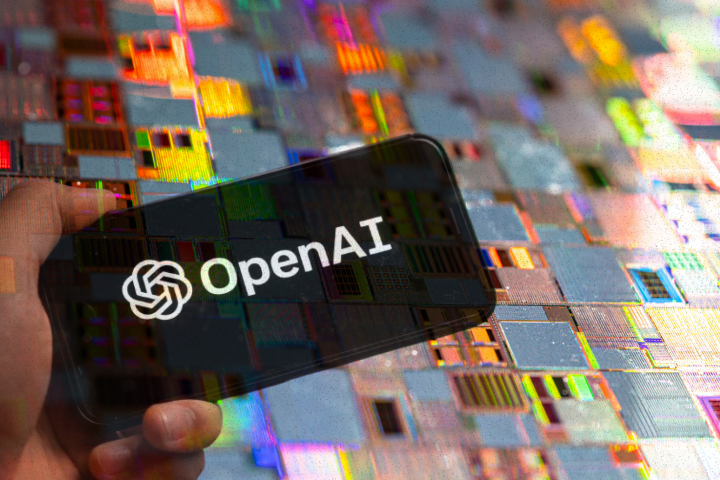Jaguar Land Rover has been brought to its knees by a crippling cyberattack, forcing factories to stay dark until late September. The UK government is in emergency mode, unions are warning of job losses, and the entire supply chain is bracing for fallout.
Meanwhile, the EU is plotting its digital euro breakout from Visa and Mastercard’s dominance. Apple quietly hikes iPhone prices while sidestepping its AI reckoning. Neuralink gears up to turn silent thoughts into typed words.
MI6 opens a dark web “front door” for global whistleblowers. And yes, Microsoft is raising Xbox prices… again.
All that and more, let us dive in…
DRIVING THE CONVERSATION TODAY
Government steps in after JLR hack
The UK government and the Society of Motor Manufacturers and Traders (SMMT) said Friday they are working closely with Jaguar Land Rover (JLR) and its suppliers to address the fallout from a major cyber incident that has halted production.
Government cyber experts are helping JLR restore operations, while officials from the Department for Business and Trade attended an extraordinary SMMT meeting to hear directly from automotive suppliers about the difficulties they are experiencing.
The joint statement emphasized ongoing efforts to assess and manage the disruption across the wider automotive supply chain.
A major cyberattack has forced Jaguar Land Rover (JLR), Britain’s biggest carmaker, to halt production for over three weeks, with factories expected to remain shut until September 24, sparking growing fears about the fallout for the UK’s auto supply chain.
EU Finance Ministers greenlight Digital Euro roadmap
European Union finance ministers agreed Friday on a roadmap to advance a digital euro, a planned electronic currency backed by the European Central Bank (ECB) that would serve as a European alternative to U.S.-dominated payment giants Visa and Mastercard.
Meeting in Copenhagen with ECB President Christine Lagarde and EU Commissioner Valdis Dombrovskis, ministers reached a compromise giving governments a formal role in deciding whether to issue the currency and in setting limits on how much individuals can hold, addressing concerns about bank stability.
While the European Commission proposed legislation in June 2023, approval from the European Parliament and Council is still pending, with officials aiming to finalize it by mid-2026 before the ECB can begin a two- to three-year rollout. Lagarde framed the project not only as a payments tool but as a declaration of Europe’s financial sovereignty in reducing reliance on foreign systems.
iPhone 17 launch draws global crowds
Apple’s iPhone 17 launched worldwide on Friday, drawing crowds from Beijing to London as the company unveiled the iPhone 17 Pro, Pro Max, and new iPhone Air alongside updated Apple Watch and AirPods models. Early signs suggest strong demand, with JD.com reporting Chinese preorders for the 17 series surpassing last year’s iPhone 16 in just the first minute, and trade-in sales quadrupling year-on-year.
Customers in China and Singapore lined up overnight, citing improved design, storage, and camera upgrades as key draws, while UK buyers showed particular interest in premium models.
The base iPhone 17 has outperformed expectations thanks to unchanged pricing despite upgraded memory. The launch comes as Apple faces stiff competition from Huawei and Xiaomi in China, where its market share has slipped to 10%, and ongoing scrutiny over its lagging artificial intelligence strategy. Analysts say the iPhone’s strong start could buy Apple time to deliver on its much-anticipated AI ambitions.
Apple CEO Tim Cook said Friday that recent iPhone 17 price increases are unrelated to U.S. tariffs. The $100 bump for iPhone 17 Pro and the new Air model reflects other factors, with Apple absorbing $800 million in tariff costs last quarter. The company has pledged $600 billion toward U.S. manufacturing while facing rising competition in China and scrutiny over its slow AI rollout.
FUNDING FLASH
Nvidia invests $500M in UK self-driving startup Wayve
Nvidia has signed a letter of intent to invest up to $500 million in UK self-driving startup Wayve, the company announced Thursday, marking a major boost for Britain’s autonomous driving sector.
The move follows a new U.S.-UK technology pact to deepen cooperation in artificial intelligence and other advanced fields. Founded in 2017, Wayve raised over $1 billion in 2024 in a SoftBank-led funding round that also included Nvidia, while Uber made a separate undisclosed investment last year.
xAI rumored to raise $10B at $200B valuation
Elon Musk’s AI startup xAI is reportedly raising $10 billion at a $200 billion valuation, , just weeks after Musk secured $10 billion in debt and equity at an estimated $150 billion valuation.
The deal, if confirmed, would make xAI one of the most highly valued players in the red-hot AI sector, following Anthropic’s $183 billion raise and OpenAI’s $500 billion valuation.
Musk, however, denied the fundraising in a post on X, calling the report “fake news.” xAI, which merged with Musk’s social platform X in March in an $80 billion deal, has faced controversy over offensive outputs from its Grok chatbot and criticism that it lags rivals in scale and capability.
Still, Musk has signaled ambitions to expand aggressively, including buying 1 million AI chips and building massive GPU-powered data centers in Tennessee to push forward next-generation AI development.
INTERESTING, BUT STILL COOKING
Neuralink to test thought-to-text brain implant in new U.S. trial
Elon Musk’s Neuralink will launch a new U.S. clinical trial in October to test whether its brain implant can translate thoughts into text, the company confirmed this week.
Approved under an FDA investigational device exemption, the study is designed to help people with severe speech impairments communicate directly from their brain’s speech cortex, bypassing slower virtual keyboard systems.
Neuralink, which already has five trials running in the U.S., Canada, the UK, and the UAE, envisions its technology eventually allowing healthy users to “speak” to AI models at the speed of thought and receive answers through devices like AirPods.
While such breakthroughs could be life-changing for patients, the prospect of mass-market consumer brain implants also raises dystopian fears about privacy, dependency, and the blurring line between human thought and machine control.
Microsoft to raise Xbox prices in October
Microsoft will increase U.S. Xbox console prices on October 3, just months after a previous hike in May, citing “macroeconomic changes” likely tied to Trump-era tariffs.
The increases range from $20 for entry-level models to $70 for the 2TB Galaxy Special Edition, now priced at $800 surpassing several PlayStation models.
Microsoft continues to pivot from a hardware-focused strategy, emphasizing Xbox streaming, a new handheld with ASUS, and wider platform access for former exclusives.
EQUALLY IMPORTANT
UK launches “Silent Courier” — A dark web portal for Spies
The UK has launched a new dark web portal, Silent Courier, designed to make it easier for people worldwide with sensitive information to securely contact British intelligence.
Announced on 19 September by outgoing MI6 Chief Sir Richard Moore in Istanbul, the platform harnesses dark web anonymity to recruit agents in Russia and beyond, targeting individuals with knowledge of terrorism or hostile intelligence activity.
Instructions for accessing Silent Courier will be posted on MI6’s verified YouTube channel, with advice on using VPNs and untraceable devices. The initiative forms part of the government’s largest defence investment since the Cold War and underlines closer UK-US intelligence cooperation, building on the CIA’s similar efforts to attract Russian informants.
Foreign Secretary Yvette Cooper said the platform reflects Britain’s need to stay ahead of adversaries, while Sir Richard described it as a “virtual door” for those willing to help counter global instability and hostile state threats.












